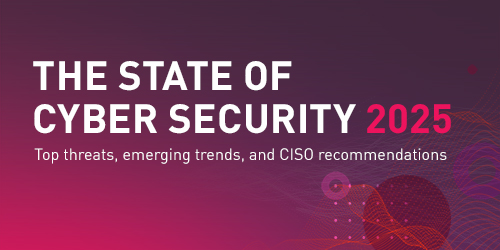What is VPN and How Does It Work?
A VPN provides a secure, private connection between two points communicating over a network. In an enterprise network, a VPN gateway is a VPN termination point for access connection requests from remote users. When a remote worker has authenticated to this VPN endpoint, the endpoint and remote VPN client set up an encrypted channel between them.
After this setup phase, all traffic flowing over the VPN is encrypted. This makes it impossible for eavesdroppers to view the data flowing over the channel and provides secure connectivity even over untrusted and insecure networks.
The Need for VPNs
An organization should always have a secure remote access strategy in place, as you never know when it will be absolutely needed. Take for example this past year and how the pandemic made remote access a necessity.
The COVID-19 virus outbreak caused major supply-chain disruptions for a wide range of industries around the world. Aerospace companies Airbus and Boeing and automakers Tesla and GM both had to close production facilities, while Apple announced that it may miss its quarterly revenue numbers, all due to an unforeseeable pandemic.
COVID-19 has also resulted in major global employers, including technology companies Amazon, Google, Microsoft, Facebook, and Twitter, requiring their employees and third-party contractors to work from home. This is a prime example of where a proper secure remote access VPN strategy is necessary.
Benefits of VPN
VPNs provide several benefits to an organization looking to support remote workers and sites, including:
- Secure Connectivity: VPNs provide an encrypted connection between a remote user and the enterprise network. This protects against eavesdropping and reduces the risk that the remote user will be infected with malware.
- Simplified Distributed Networks: A user, whether a remote worker or a branch site, has an encrypted connection to the headquarters network. VPN connections provide a user experience nearly identical to a direct connection to the headquarters network, making it simpler to design and implement distributed networks.
- Access Control: A VPN requires authentication before a user can access resources on the corporate network. This helps to protect against unauthorized access to corporate assets.
- Data Throttling Prevention: A VPN limits outsiders’ visibility into the data traveling over the encrypted channel. This can help to protect against throttling of certain types of network traffic.
- Support Costs Reduction: By allowing users to securely access resources on the corporate network and cloud infrastructure, VPNs consolidate corporate assets, making them simpler to monitor and maintain.
- Network Scalability: VPNs enable an organization to easily link distributed networks together over the public Internet using encrypted channels. This enables an organization to easily scale its network while treating it as a single, private network.
Common VPN Disadvantages with the Wrong Solution
The right secure remote access solution provides significant benefits to an organization, but the wrong one can be a major liability. Some common disadvantages of VPN solutions include:
- Slow Connection Speeds: VPNs require authentication and connection setup between the remote user and the VPN server on the corporate network. This can cause slow connection speeds. Session timeouts mean that the authentication may need to happen frequently.
- Complicated Setup & Management: A VPN implements a point-to-point connection linking a remote user or site to the corporate network. This can create a complex network infrastructure that is difficult to deploy, configure, and manage.
- Poor User Experience: Some VPN solutions are difficult to configure and may not be well-supported on certain devices and operating systems. This leads to a poor user experience that can drive users to violate corporate policy.
- Security Risks: A VPN is designed to provide a remote user with a secure connection and full access to the enterprise network. A VPN does not include access controls or any security inspection, meaning that it does not protect against compromised accounts, data exfiltration, malware, or other security risks.
Choosing the Right Secure Remote Access Solution
Not every secure remote access solution will be the right fit for your organization. Check Point’s Quantum VPN is integrated into every network firewall, providing secure access to the headquarters network for a remote workforce. For those organizations with many sites and remote workers, a Secure Access Service Edge (SASE) solution, like Harmony SASE may be the better option. To learn more about Check Point’s remote access solutions and which might be best for your organization, request a demo.





